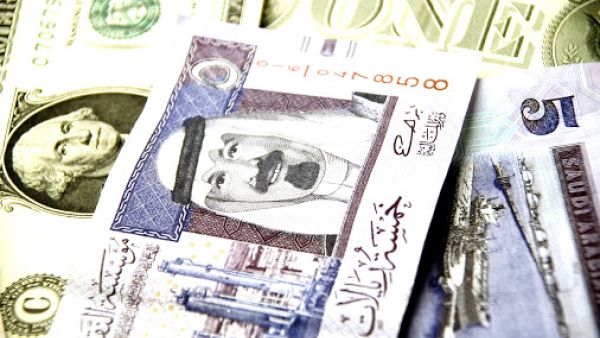Saudi Arabia's move to raise $10 billion via an international bank loan reflects the pressure on its fiscal balances caused by lower oil prices that contributed to our recent sovereign downgrade, Fitch Ratings says.
Over the longer term, international sovereign debt issuance may support the development of a market for Saudi corporate bonds. Press reports on Wednesday said that Saudi Arabia had agreed a $10 billion, five-year loan from a group of US, European and Asian banks.
Demand was strong for participation in the syndicated loan, which will be the Kingdom's first international borrowing since 1991 and prefaces an international bond issuance that Saudi officials say is planned for this year.
The prospect of a syndicated loan of up to $10 billion and a potential Eurobond sale were factored into Fitch's sovereign debt projections when we downgraded Saudi Arabia to 'AA-'/Negative this month.
Combined with domestic debt issuance, international borrowing will push general government debt-to-GDP to 9.4 per cent in 2017. The ratio is still well below the 'AA' category median (36.9 per cent), but has increased sharply from 1.5 per cent in 2014 due to the fall in oil prices.
A large share of the government's financing needs will be funded by disposing of foreign financial assets. Building up the sovereign's international borrowing capacity would increase financing flexibility at a time when fiscal and external balance sheets are still strong. It also lessens the erosion of external buffers caused by lower oil prices, but this will still be substantial.
As a result of declining assets and rising debt, we forecast the sovereign net foreign asset position to fall to 78 per cent of GDP in 2017 from 113 per cent in 2014. This will still be high, but would be less than half the ratio of the other 'AA' category Gulf Cooperation Council energy exporters - Kuwait, Abu Dhabi and Qatar.
A record of international sovereign borrowing may also have structural benefits by supporting international Sukuk and bond issuance by big Saudi corporates, for example by establishing a pricing benchmark and enabling them to diversify away from bank lending. This would provide an alternative source of funds for investment by Saudi corporates, which would support growth.








